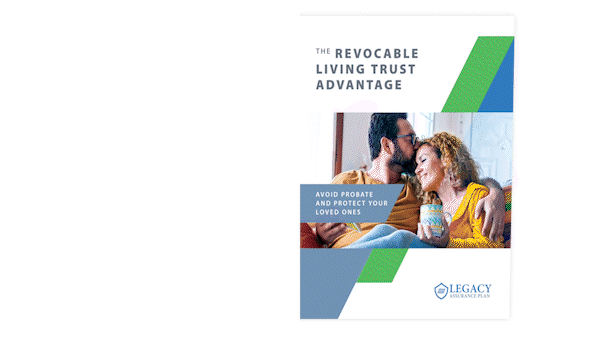Over the last several decades, revocable living trusts have become much more familiar to an ever-increasing percentage of the public. Many people have become educated about living trusts' benefits when it comes to avoiding the time, stress and expense involved in probate administration. Others may also be aware of living trusts' possible advantages when it comes to protecting your privacy by keeping the specifics of your assets out of the public record. But living trusts have the potential to do much more than that. Properly drafted, executed and funded, living trusts can offer a wide array of positives to the person who includes it in their estate.
What is a revocable living trust?
A revocable living trust is a legal document that allows an individual (known as the "grantor") to create an agreement that names one or more persons and/or a company (typically a bank or trust firm) as a trustee of finances and assets. The grantor retains control over the assets in the trust while they are alive, but they transfer ownership of the assets to the trustee when they die. This can help to avoid probate, which is the legal process of distributing a deceased person's assets.
Revocable living trusts are often used by people who want to make sure that their assets are distributed according to their wishes after they die. They can also be used to protect assets from creditors and to provide for the care of a disabled or minor child.
There are a number of benefits to using a revocable living trust. They include:
- Avoiding probate. Probate can be a lengthy and expensive process. A revocable living trust can help to avoid probate by transferring ownership of assets to the trustee when the grantor dies.
- Providing for the care of a disabled or minor child. A revocable living trust can be used to name a guardian for a disabled or minor child and to provide for their financial needs.
- Protecting assets from creditors. A revocable living trust can be used to protect assets from creditors if the grantor is sued or becomes bankrupt.
- Providing privacy. The terms of a revocable living trust are not usually made public, which can provide some privacy for the grantor.
However, there are also some drawbacks to using a revocable living trust:
- Cost. Revocable living trusts can be more expensive to create and maintain than wills.
- Complexity. Revocable living trusts can be complex documents, and it is important to have an attorney help you create one.
If you are considering creating a revocable living trust, it is important to talk to an attorney to discuss your specific needs and goals. They can help you decide if a revocable living trust is right for you and can help you create a trust that meets your needs.
In the meantime, let’s look at four issues you may not be aware of that a revocable living trust can address.
No. 1: A living trust may help protect you if you become mentally incapacitated.

If you experience a medical event, whether it is a degenerative condition like Alzheimer's disease, a massive trauma like a stroke or some other event that renders you mentally unable to make decisions on your own behalf, it may be necessary to go to court and ask a judge to appoint someone, known as a “conservator” or “guardian of the estate,” to be responsible for managing your wealth and making your financial decisions for you. If, however, you have a properly funded living trust, this court process may be unnecessary. With a properly funded living trust, your trust holds your assets and, upon the onset of your mental incapacity, your trust would dictate that your successor trustee would take over the duties of managing your assets, which could avoid the need for a conservator at all. This ensures someone you trust takes over rather than the court appointing one.
The successor trustee has a fiduciary duty to manage the trust in your best interests. This provides a layer of oversight and protection against financial abuse. Also, the trust can provide legally binding instructions on how assets are to be managed and distributed if you become incapacitated. This avoids uncertainty about your preferences.
A mentioned, a trust avoids probate, so assets in the living trust can be transferred seamlessly upon incapacity or death, avoiding the public probate process. This maintains privacy even if incapacitated.
In summary, a living trust established in advance designates those you trust to take charge financially if unable to manage your own affairs. It provides legal protection that avoids court intervention and the probate process at a vulnerable time.
No. 2: A living trust may protect your family if you leave behind minor or young adult children.
If you have minor children, the person you want to care for them until they reach adulthood may not necessarily be the person you want to manage your child's inheritance. In a similar fashion, you may be less than comfortable with your 18-, 19- or 20-year-old having unrestricted access to, and control of, their inheritance. In either circumstance, your trust can help.
A living trust can provide important protections and benefits for minor or young adult children in the event of your passing. Your trust can:
- Outline instructions for children's care. Within the trust, you can provide guidance and instructions related to your children's upbringing, education, use of trust funds, etc. This ensures your wishes are followed.
- Manage inheritance. Successor trustees can manage assets left to children in the trust until they reach ages you specify. This provides oversight of their inheritance during formative years.
- Provide income. A trust, as mentioned, can be structured to distribute income to children at appropriate ages for support. This gives them needed funds before full inheritance.
- Prevent misuse. Trust terms can prevent asset waste, like prohibiting sale of principle residence until a certain age. The trustee can also limit distributions if funds are being misused.
- Preserve government benefits. Special needs trusts allow children with disabilities to inherit without losing needs-based government benefits.
Properly crafted, a living trust provides financial management tailored to protect children and prepare them for maturity and full inheritance access once ready. It prevents court intervention while upholding your values.
No. 3: A bank account owned by a living trust may have greater federal insurance protection than one held by an individual.

A bank account owned by a living trust can potentially receive greater federal insurance protection compared to an account owned by an individual. Here are some of the key reasons why:
- Separate entity for FDIC coverage. A living trust is considered a separate legal entity from the individual who created it. This means a trust-owned bank account is eligible for its own $250,000 FDIC insurance coverage.
- Ability to get more coverage. An individual is limited to $250,000 in FDIC coverage across all their bank accounts at a single institution. But a living trust can establish its own $250,000 of FDIC coverage at the same bank where the individual also has accounts. This effectively doubles the total protection.
- Coverage for non-spouse beneficiaries. Accounts with joint ownership between two individuals are limited to $250,000 FDIC coverage. But a living trust with multiple non-spouse beneficiaries can qualify each beneficiary's interest up to $250,000 of insurance.
- Maintains FDIC eligibility. Trust-owned accounts still receive FDIC protection, unlike other options like joint accounts with non-family members that forfeit FDIC eligibility.
- Professional fiduciary oversight. Corporate trustees like banks and trust companies provide oversight for trust accounts, adhering to fiduciary duties and protecting deposits.
By titling bank accounts in the name of a properly structured living trust, individuals can maximize FDIC coverage beyond the limitations that apply to personally owned accounts. Consult with financial and legal professionals for guidance on arranging trust-owned bank accounts to fully leverage federal deposit insurance.
No. 4: A living trust is not a complete substitute for a will.

While a properly executed and funded living trust can offer you the benefit of avoiding probate, it does not mean that you should avoid preparing a last will and testament. A companion will for living trusts, which is often called a “pour-over” will, should still be part of your estate plan. Your pour-over will protects you in case you have assets that you forgot, obtained shortly before your death or otherwise did not get funded into your trust (for whatever reason.) Your pour-over will also protects you if you have minor children, as it can be used to indicate to the courts who you would like to be appointed as the person responsible for caring for your child until that child reaches adulthood.
So, while a living trust provides immense benefits like avoiding probate for trust assets, both a trust and will are recommended. The will catches any assets not transferred to the trust, handles guardianship and appoints an executor to administratively settle your estate. A comprehensive plan should incorporate both complementary documents.
These are the key reasons why a living trust is not a complete substitute for a will:
- Does not cover all assets. A living trust only includes assets that have been titled in the name of the trust. Any assets still personally owned would be subject to probate without a will.
- Does not establish guardians. A will is required to legally nominate guardians for minor children. A trust does not address guardianship for minor children.
- May not avoid ancillary probate. If you own real estate in multiple states, ancillary probate may still be needed in each state. A will can help streamline this process.
- Does not name executor. Your will allows appointing an executor to oversee wrapping up your estate. An executor is distinct from a trustee's role.
- Limited planning flexibility. Complex estate plans often utilize both a living trust and a will to take advantage of the strengths of each instrument.



